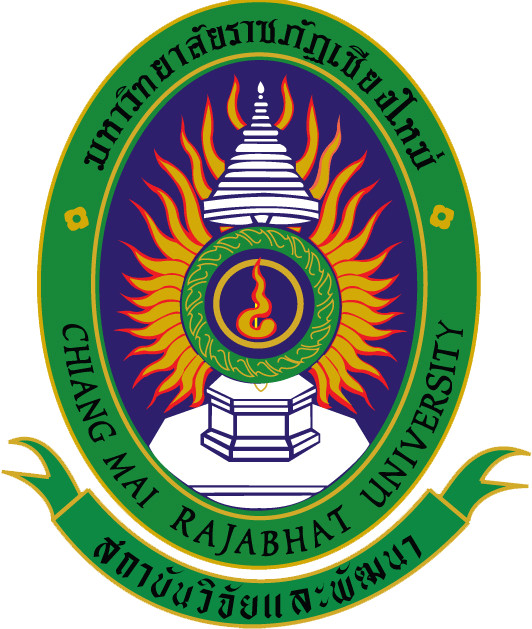
ระบบสารสนเทศงานวิจัย สถาบันวิจัยและพัฒนา มหาวิทยาลัยราชภัฏเชียงใหม่
Research Information System(RIS)
ปัจจัยที่ส่งผลต่อความล้มเหลวของการศึกษาไทยในปัจจุบันที่ไม่สามารถพัฒนาผู้เรียนสำหรับทักษะแห่งศตวรรษที่ ๒๑: กรณีศึกษา
อาจารย์นิตยา สงวนงาม
คณะมนุษยศาสตร์และสังคมศาสตร์
คำสำคัญ :
เลขทะเบียน :
671-59-HUSO-NRCT
บทคัดย่อ
โลกกำลังเจริญก้าวหน้าไปอย่างรวดเร็วโดยไม่หยุดยั้งไปสู่ยุคแห่งความรู้และข้อมูลข่าวสารทั่วโลกด้วยการสร้างความรู้ใหม่ร่วมกันและการคิดที่ก้าวไกล ทุกภาคส่วนและทุกองค์กรณ์รวมถึงองค์กรณ์ทางการศึกษาอาจจำเป็นต้องปฏิรูปปรับเปลี่ยนการปฏิบัติงานให้เท่าทันและเหมาะสมกับการเปลี่ยนแปลงเหล่านี้โดยหันมาเน้นการเรียนรู้ส่วนบุคคล และครูและบุคลากรทางการศึกษามีส่วนสำคัญที่สุดในการที่จะขับเคลื่อน อย่างไรก็ตามผลของการประเมินทักษะการเรียนรู้นักเรียนนานาชาติ โดย PISA ประเทศไทยยังถูกจัดอยู่ในอยู่ในอันดับที่ไกลจากประเทศเพื่อนบ้านและใกล้ถึงจุดต่ำสุดของประเทศที่เข้าร่วมโครงการ แม้ว่าจะมีการจัดสรรงบประมาณจำนวนมหาศาลให้กับการศึกษา การวิจัยเชิงคุณภาพที่เป็นกรณีศึกษานี้ได้ศึกษาถึงปัจจัยที่ส่งผลต่อความล้มเหลวของการศึกษาไทยโดยมีครูและผู้บริหารโรงเรียนจำนวน งานวิจัยได้ทำขึ้น โดยเก็บข้อมูลกับ ครูผู้สอน และผู้บริหาร จำนวน 50 คนในโรงเรียนประถมศึกษาและมัธยมศึกษาในจังหวัดเชียงใหม่ เครื่องมือที่ใช้ในการเก็บรวบรวม ข้อมูลประกอบไปด้วย การสัมภาษณ์ แบบสอบถาม และการสังเกตการสอน ข้อมูลทางด้านปริมานถูกวิเคราะห์ด้วยสถิติเชิงบรรยาย ส่วนข้อมูลทางด้านคุณภาพถูกวิเคราะห์เชิงเนื้อหาโดยโปรแกรม Hyper Research. ผลของการวิจัยแสดงให้เห็นว่า ประเทศไทยมีหลักสูตรที่มีคุณภาพ แต่การจัดการเรียนการสอนตลอดจนการวัดผลประเมินผล และการบริหารการศึกษา ไม่สอดคล้องกับหลักการและความต้องการของหลักสูตร นอกจากนี้ ครูผู้สอนและ ผู้บริหาร ยังขาดความเข้าใจที่แท้จริงในจุดประสงค์ของหลักสูตร การเรียนการสอนที่มีคุณภาพ การวัดผลประเมินผลที่มีประสิทธิภาพ ตลอดจน ทักษะศตวรรษที่ 21 และเข้าใจว่านักเรียนไทย ยังไม่สามารถเรียนรู้ด้วยตนเองได้โดยปราศจากครูผู้สอน สิ่งที่น่าสนใจผลการวิจัยพบว่าวัฒนธรรมและความเชื่อของครูมีความสัมพันธ์กันอย่างมีนัยสำคัญที่มีอิทธิพลต่อแนวทางการสอนของพวกเขา คำสำคัญ: การศึกษาความเชื่อและวัฒนธรรมของครูผลสัมฤทธิ์ทางการเรียนทักษะในศตวรรษที่ 21
Abstract
The world is moving at supersonic speed into global knowledge and information age with knowledge co-construction and breakthrough thinking. Every sector including education may need to be reset for this change emphasizing personalized learning, and the teacher matters most. However, Thailand has been ranked far behind its neighboring countries and near the bottom of countries participating in the PISA program despite the fact that it has allocated a huge budget to its education. This qualitative case study investigated the factors behind the failure of Thai education. Twenty teachers and principals at fifty primary schools in Chiang Mai, Thailand participated in the study. Data were obtained through interviews, questionnaires, and teaching observations. The quantitative data were analyzed by means of descriptive statistics while the qualitative data were analyzed by content analysis using Hyper Research Program. The findings illustrate that basic Thai national curriculum meets 21st century education standards. However, there were no close link between policy implementers, researchers and educators. Moreover, teachers and principals seemed to lack deep understanding regarding the curriculum’s expectations and goals, innovative teaching and evaluation and 21st century education. Teachers and principals perceived their students as dependent learners and innovative teaching methods did not suit the contexts. Interestingly, the findings reveal that the teachers’ cultures and beliefs have a significant correlation influencing their teaching practices. Also, the results of the study reveal that the large test-centric system with multiple choice questions has been the other key factor inhibiting Thai students from mastering needed 21st century skills. Keywords: education, teacher belief and culture, learning achievement, 21st century skills
ไฟล์งานวิจัย
อยู่ในระหว่างการปรับปรุงเนื้อหา345 20 มี.ค. 2561
สำนักงานคณะกรรมการวิจัยแห่งชาติ (วช.)
196 Paholyotin Rd., Chatuchak, Bangkok 10900
0-2561-2445